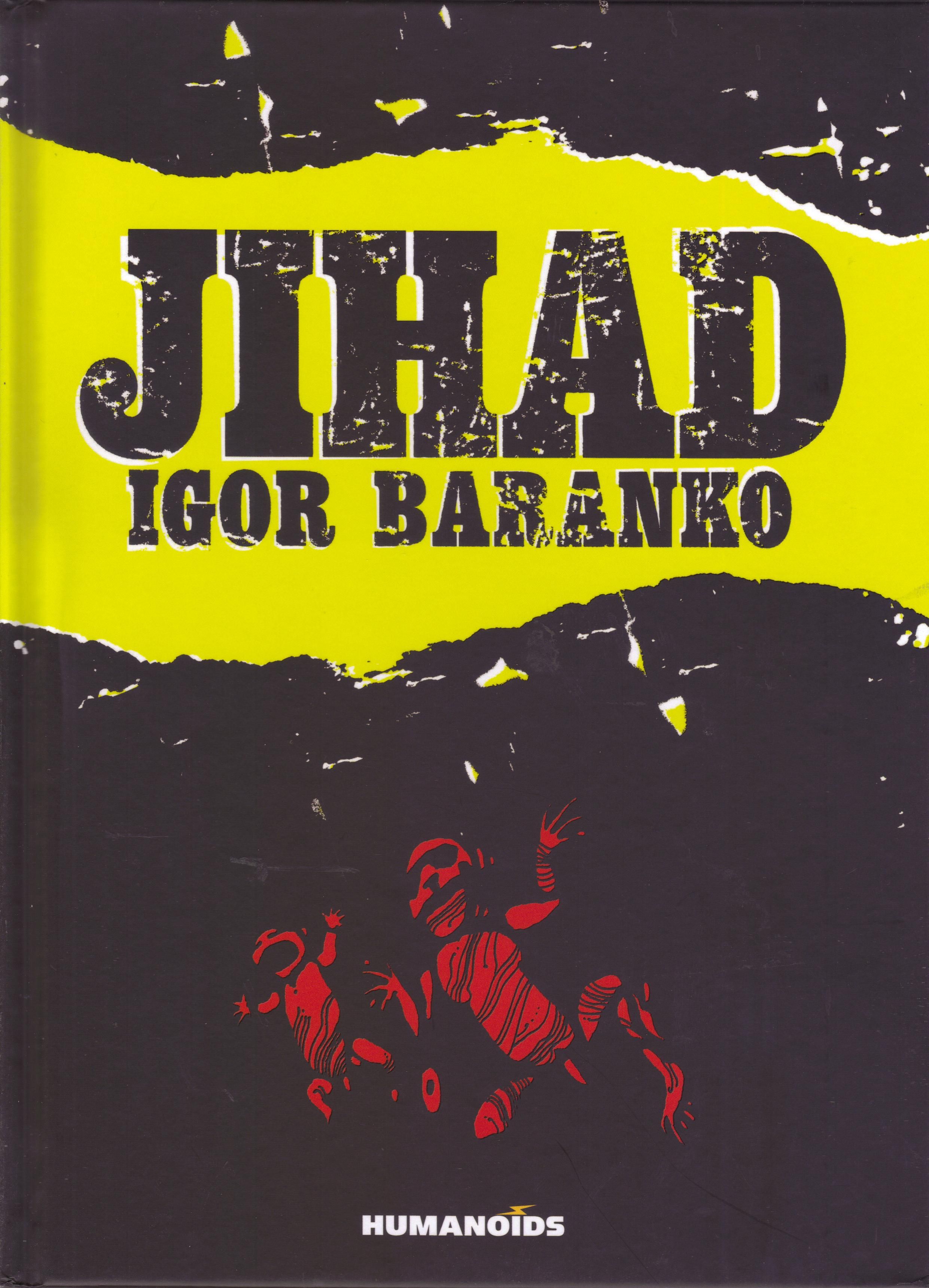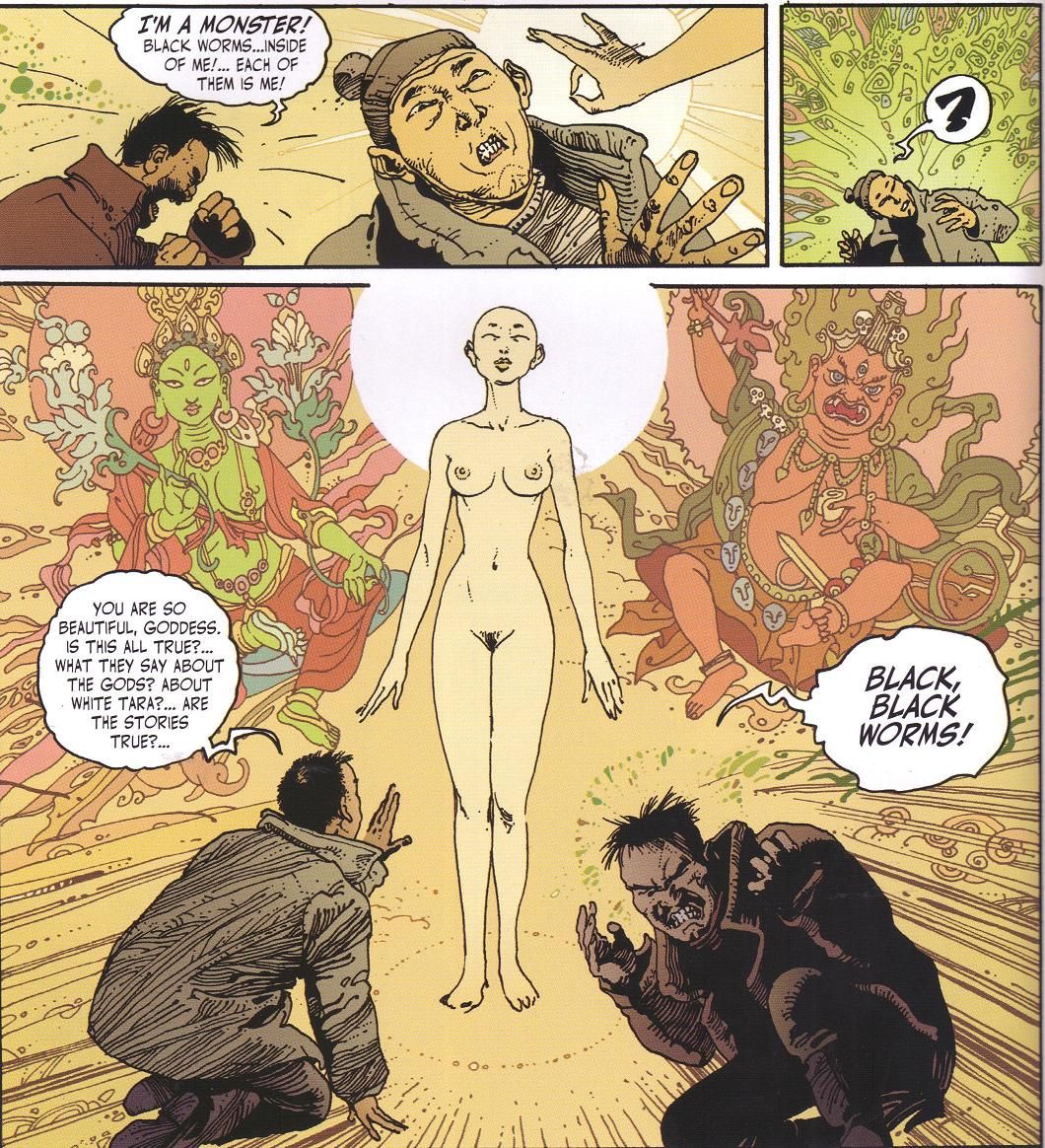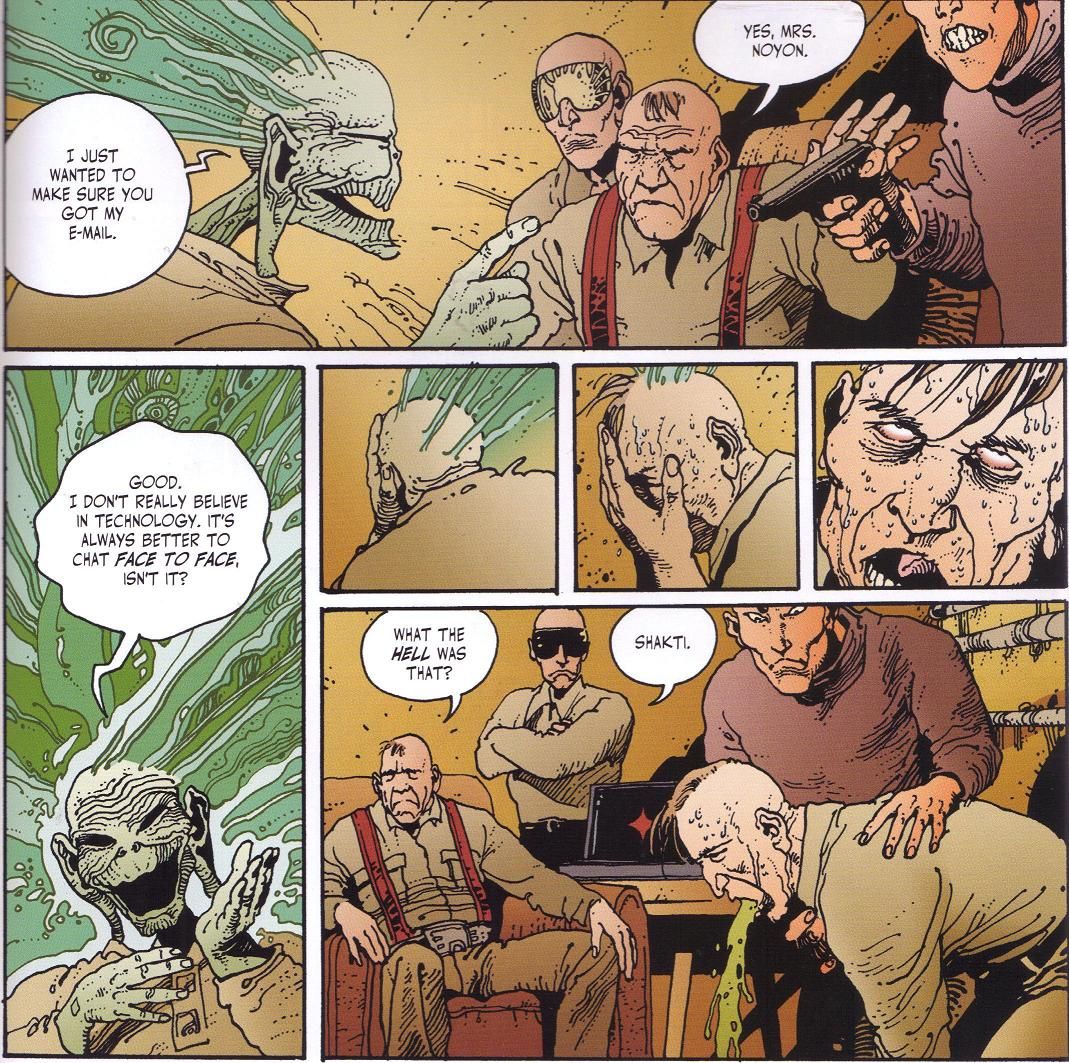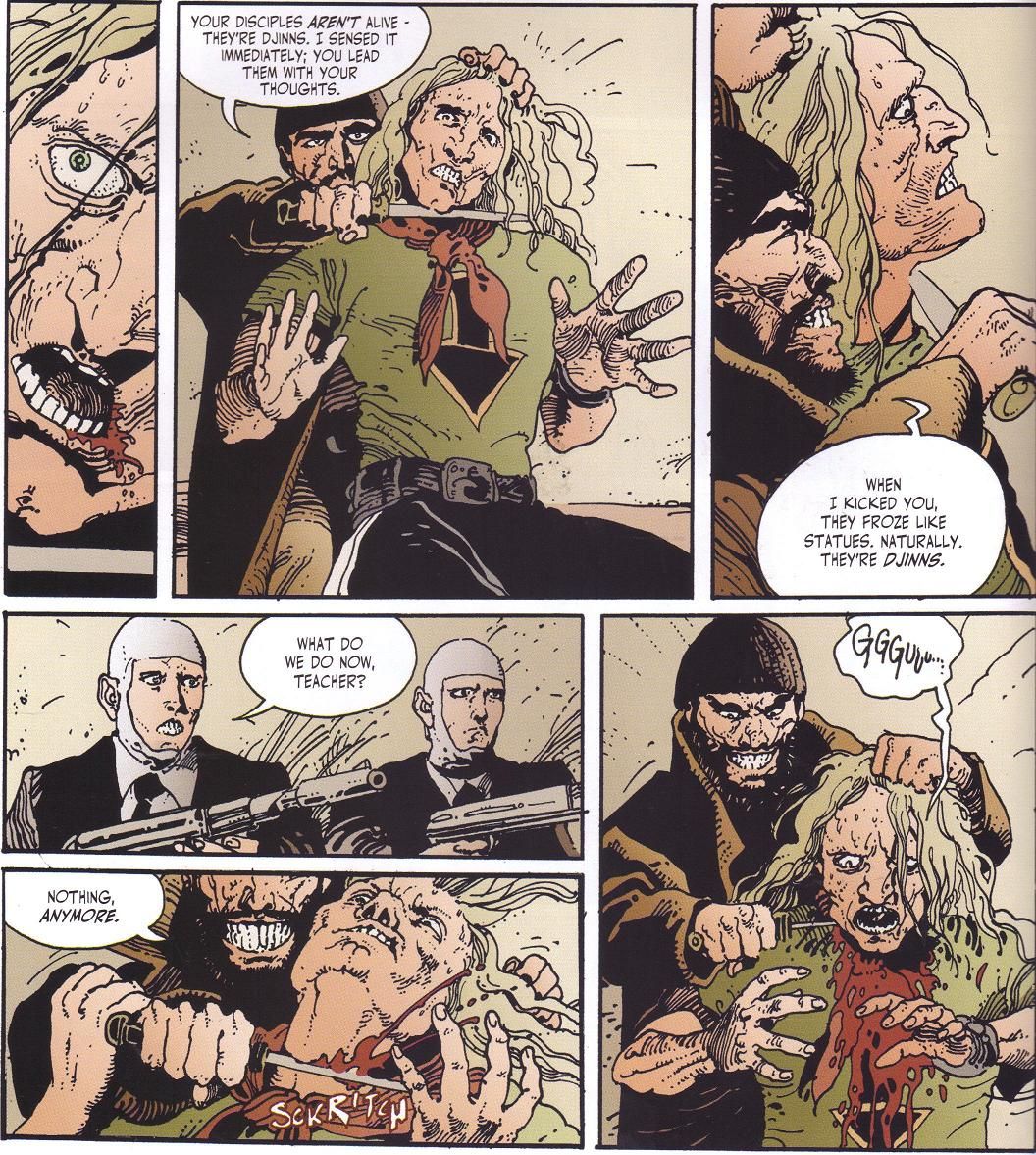Here's an older book with a new, fancy format. Yay, new formats! (I hate that I have to do this, but there's some NSFW stuff below the cut. Just so you know.)
Jihad is by Igor Baranko, and it's published by Humanoids. Like most Humanoids books, it's a bit spendy at $29.95, but that's what you have to deal with if you want high quality European comics.
Don't you like high quality European comics, punks? Don't you?!?!?
This book was published as The Horde in 2004 when Humanoids was still doing business with DC (the renaming had something to do with the name "Jihad" somehow being controversial back in '04; honestly, I was too busy doing 'Ludes back then to remember what the big deal was), but it's now in a bigger format, like it was originally published. European comics tend to be bigger than American ones, and it's cool to see the book reprinted in this larger format. I don't know if it's been re-translated (Pat McGreal and Baranko handle the translation), but that's not really the point, is it? Meanwhile, Dave Stewart and Charlie Kirchoff color the book, so there's that, too.
Anyway, Jihad is really, really ... weird. And really good, by the way, but it's really weird, too. It's kind of hard to describe. The comic takes place in 2040, and a failed science fiction writer, Ivan Apelsinov, is the dictator of Russia. The story begins with a woman meditating in a room. She's bald and naked, and she remains naked throughout the comic. Ivan, meanwhile, wants to align Russia with Genghis Khan and the Golden Horde, because he wants to recreate the Mongol empire and turn Russia away from the Slavic states that it has always been associated with. Ivan has learned that in the 1920s, several Mongolian lamas were brought to Moscow, and one of them believed he was the reincarnation of Genghis Khan himself. Ivan sends his trusted general, Volkov, to Kiev to find the lama's remains, because Ivan thinks he can become an incarnation of Genghis Khan.
There's also a Chechnyan soldier named Joe (well, Jhokhar, but still) who has entrusted his life to Allah and believes that he has a sacred mission to complete and that Allah will allow no harm to befall him until he completes the mission. And there are UFOs zipping around. And a gypsy woman with an evil baby. And a weird old woman with really, really floppy breasts who claims to be the old lama's widow and tells Volkov that she can help him find the body. And a clone of Isaac Newton who believes that castration is the only way for men to achieve logical enlightenment. So, yeah.
It's not just weird for the sake of being weird, though. Russia has always been an Asian country as much as European one, and Russian history is tied up more than Westerners might think with Mongol history, so Ivan's desire to link his country with Genghis Khan isn't that unusual. Russian history has a strain of mysticism running through it, as well, so the country of Rasputin might just be run by a dude who believes he can find Genghis Khan's soul and absorb it. Why not? Despite some odd vignettes that seem to come from a slapstick comedy routine (usually involving Ivan, who's clearly somewhere around the bend), the book's weirdness is firmly rooted in its premise, which makes things easier to deal with. This does not feel, in other words, like someone sitting around in a bar randomly smushing pop culture elements together and then writing a comic about it. Baranko isn't interested in just writing a weird, quasi-sci-fi thriller, either - he gets into what Genghis Khan himself wants and how he can go about achieving that, and it might not jive with what the still-living people in the book want with him.
And, unlike far too many thrillers, the climax is fairly anti-climactic, which actually works really well in this book. Baranko doesn't really do what we expect him to do in this comic, which is refreshing. Obviously, some things are easily seen coming down the line (one character constantly talks about his fate, and it's clear that he has some kind of knowledge about it), but for the most part, Baranko doesn't slot his characters into a plot, he lets his characters do things based on what they feel. It's rather nice!
His art is superb, too, which is always helpful. For lack of a better term, it's very "European," in that Baranko uses a lot of panels, packing each with a lot of details, and he gives every character a rough, lived-in look. His lines are precise without being part of the ligne claire tradition, and Baranko eschews holding lines in some crucial scenes, which helps distinguish some of the more mystical parts of the book from the more mundane sections. His art is reminiscent, to me, of Jacques Tardi's work, and considering how good Tardi is, I consider that a good thing. The introduction to the book compares him to Hugo Pratt, but I see more of Tardi's art than Pratt's in it. You may disagree.
Jihad is really an interesting comic, full of weird and colorful characters and a cool plot that keeps you surprised. It's fascinating reading a comic set in a dystopian future that is very different from the ones we usually see. This is an exciting, bizarre, bloody, and humorous thriller with very good art. What more could you want?





